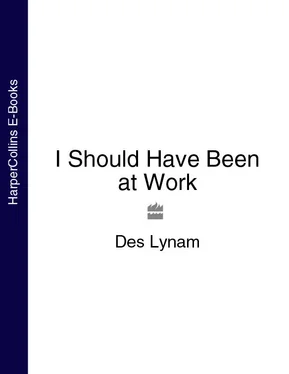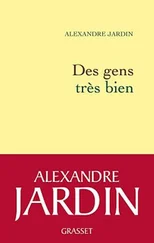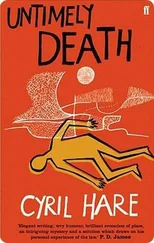Soon afterwards I was also approached by Aubrey Singer, who at the time was Managing Director of BBC Radio. Aubrey had a proposition for me. At the time, my television career was just about getting under way. I had done a few Grandstands and was beginning to get the hang of it, but I still went back to radio for boxing and tennis commentaries. It was while I was covering the Wimbledon Championships for radio that Aubrey grabbed me. ‘As you know,’ he said, ‘Bob Burrows has left us for ITV and I wonder if you would consider the possibility of becoming the boss of radio sport.’ I was shocked and flattered. If the invitation had come a year or two before, when I felt terribly insecure on television, I think I would have jumped at it. I knew the radio set-up pretty well and had loved my time there; I also knew what a great department Burrows and Cliff Morgan had built. The trouble was that I was now thinking that I might carve out a bit of a future for myself on TV.
Did I really want to be on the administrative side of broadcasting? I thought about it very carefully and decided that I would gamble on making it on the box, though for a while afterwards, when things weren’t going too well, I wondered if I had made the right decision. As it turned out, my good friend Patricia Ewing eventually took over the department and made a huge success of it. I know she thinks I made the right decision – not just for me, but for BBC Radio Sport.
I was destined for other things.
The 1976 Olympics in Montreal, Canada, were the Games at which the world discovered the fabulous talent of Sugar Ray Leonard. In fact it was the last Olympics in which the Americans dominated the boxing events. In addition to Leonard, they had a brilliant lightweight in Howard Davis, who was selected as best boxer of the entire Games, outshining even Leonard. Then there were the Spinks brothers at middle and light-heavyweight and the flyweight Leo Randolph. Five gold medals. They couldn’t win the heavyweight gold though. That went to Cuba’s Teofilio Stevenson, who had won in Munich and would collect his third gold in Moscow in 1980. In Britain’s team were Pat Cowdell and Colin Jones, both of whom became outstanding professionals and contested world titles. Alongside them was Charlie Magri, a flyweight, who did win a world championship.
For these Games, BBC Radio had selected a certain Terry Wogan to be the presenter for the evening Olympic shows. Terry was based in London and turned out to be an inspired choice. An avid sports fan, though certainly no specialist, he brought just the right kind of irreverence and questioning approach to the broadcasts, plus of course his usual wit. ‘Smallbore rifle shooting’ was one sport out of which he got great mileage. I had many ‘two-ways’ down the line with him, both of us roaring with laughter.
One day I got an urgent call from BBC Television. Could I go into their studio and ‘dub’ some commentary on a few boxing contests – that is, record the commentary after the event – as Harry Carpenter had gone down with a throat infection. I was all set to do the job when Harry made a pretty swift recovery. Broadcasters do not easily give ground to anyone waiting in the wings.
My old mate Jonesy had a nasty experience in Montreal. Handsome devil that he was, he had no trouble attracting the ladies. One night he and a colleague, not me on this occasion, had gone back to the apartment of a very attractive girl and her friend for drinks. They were just enjoying their first one when there was a crash through the door and they were confronted by a rather large gentleman who turned out to be the husband of their hostess. The situation was manageable at that point, until he pulled out his hand-gun. This was when Jonesy, ever the erudite Cambridge man, proferred the wholly inadequate response, ‘Now we don’t want any unpleasantness.’ They got out in double-quick time, and literally ran for their lives.
Off air, I was spending a little leisure time with Dr Liz Ferris, a diving medallist at the Rome Olympics, who was part of our commentary team. Liz introduced me to acupuncture, which certainly helped with some back pain I was having, and she also tried to teach me to do a ‘tumble turn’ in the swimming pool, with less success. I think that was what was giving me the back pain in the first place, but I still have fond memories of Lizzie’s beaming smile and her head-back laughter as I nearly drowned on numerous occasions.
I got on with my radio work until it was time for the Games to come to an end. They had been pretty miserable in terms of British success. On the track, Brendan Foster’s bronze medal at 10,000 metres was the only one won. But David Wilkie had won a swimming gold in the breaststroke, and we had done very well in the modern pentathlon, winning gold there too.
The pentathlon team was led by Jim Fox, a big handsome blond athlete who had all the girls swooning. The modern pentathlon comprises shooting, fencing, riding, swimming and running, and was originally introduced into the Games to replicate the tests that a military messenger might have to encounter during a battle. In the fencing section, Fox discovered that his Soviet opponent, Boris Onishenko, seemed to be recording hits electronically when Fox knew that no contact had been made. The British competitor reluctantly reported his misgivings to the authorities – reluctantly, because Onishenko had been a fellow competitor at many championships and Jim had counted him a friend. It was subsequently found that Onishenko had cunningly rewired his weapon in such a way as to allow himself to record hits when none had in fact occurred. He was thrown out of the Games in disgrace.
After the Games, Phil King and I decided to take a break in New York, taking a train, the ‘Adirondack’, down through southern Canada, through Vermont and New England. The journey was most comfortable and slow, but it was all the better for that, allowing us to enjoy the splendid scenery.
We had arranged to stay in the apartment of a New York-based BBC man who was going off on holiday elsewhere. It happened to be in the same apartment block, and on the same floor, as the film actress Angie Dickinson. She said ‘Good morning’ to me one day. I could hardly get over it. Kingy and I resolved to ask her out for a spot of dinner if we bumped into her again. Pipe dream. Phil and I enjoyed the bars of Second Avenue and one or two parties at the British Airways ‘Speed-bird’ Club. I was offered a joint one night, but as a non-smoker couldn’t handle the inhaling and my career as a drug-taker lasted all of two minutes. I was content enjoying a few beers.
Back home, I returned to the routine of presenting the radio sports programmes and endeavouring to see my son as often as possible. He was growing up fast.
I had given up trying to commute from Brighton to London each day and, while keeping my own flat on the coast, was sharing an apartment in London with a lovely lady called Patty Smith. I met her through her daughter, Jenny, who had told me her mother, who was divorced, was looking for a p.g., as she put it – a paying guest. Things got a little tricky for a time, because Patty was as glamorous as her daughter.
Later I shared a house with a great friend, Mike Greenlees, who went on to become a huge player in the world of advertising. We were two Jack the Lads for a time: nice house in Putney, which he owned, two sports cars parked outside, ready for action. We were rather like the Jack Lemmon–Walter Matthau pairing in The Odd Couple , advertising man and sports journalist, one tidy and organised (Mike), the other messy and disorganised (me).
As well as the sport, I was now asked to present a radio quiz programme called Treble Chance Quiz. The programme took two team captains around the country and they competed against each other with members of the public from the town we were visiting against an ‘away’ team. The team captains were usually Patrick Moore, the astronomer, and the late Ted Moult. The producer was a long-term BBC man, Michael Tuke-Hastings. Michael was fun but an absolute snob. Once, recording at Warwick Castle, he described our host, who seemed to me to be a perfectly charming and well-educated man, as ‘strictly minor public school’. Another time, we were staying in a small hotel when the receptionist announced there was a telephone call for ‘the Duke of Hastings’ instead of Tuke-Hastings. Michael certainly acted like he should have had a title.
Читать дальше












